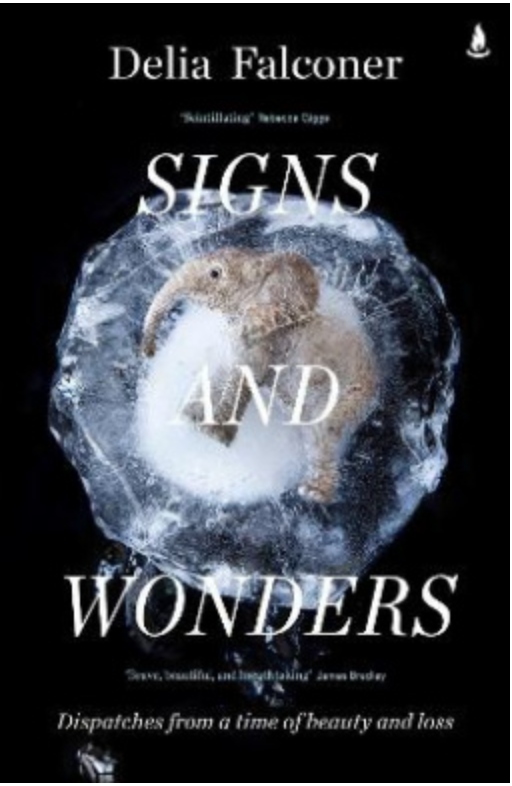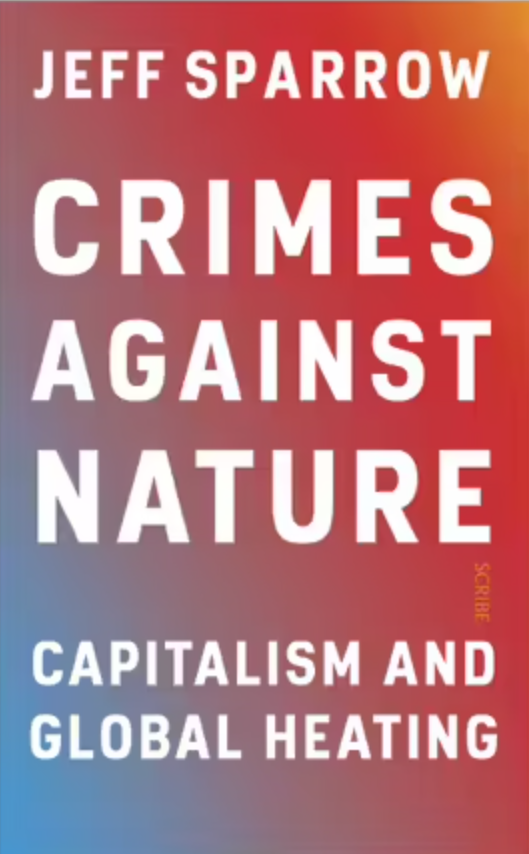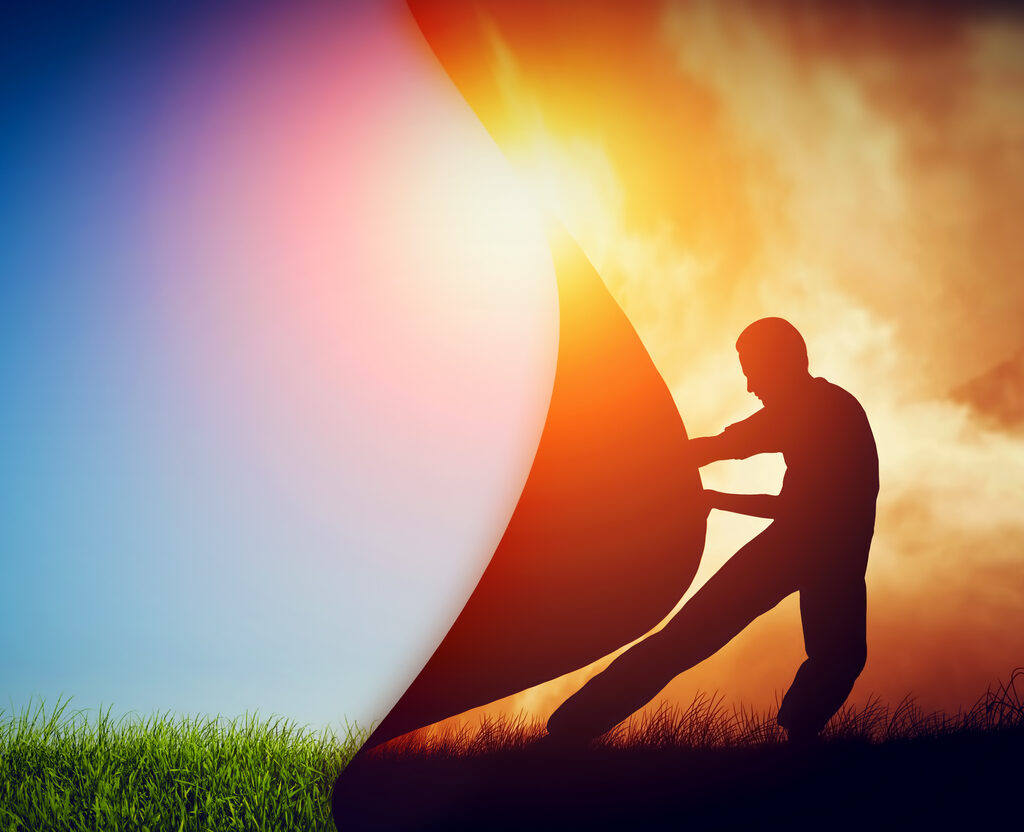Reviews: Signs and Wonders: Dispatches from a time of beauty and loss by Delia Falconer | Crimes Against Nature: Capitalism and Global Heating by Jeff Sparrow
The title of Delia Falconer’s book refers to current ecological crises, and the fact that, as she says, paying attention to the world around us can cause alarm. The natural world is an amazing place, but is besieged, and we are increasingly accosted by it being off-kilter – ‘beauty’ jostles with ‘loss’. The title, in its religious connotations, may also refer to the fact that while some of us can see the apocalyptic signs, others are going about their business-as-usual.
The book includes essays on the state of literature, and a seal in inner Sydney. There are chapters that are a pandemic diary of walking Sydney’s streets, mixing beauty and loss too. Inner Sydney sure is a place for walking – twisting streets and paths, delightfully bursting foliage and sandstone, the saturation of history. But she contrasts this with what she calls the heartbreakingly empty streets.

Another chapter is a fire diary. She spent time in southern NSW during the catastrophic 2020 fires; otherwise, she was in the city, as were many others, coughing through the days of haze. Naturally, she wrestles with the enormity and the ferocity and our collective failure – against Indigenous tradition – of making the right connections, seeing holistically.
One of her essays is about coal, the ‘wondrous’ rock that has contributed so heftily to our current predicament. Facts in the essay are like the fossils in coal, crammed. She notes the prominence of coal in Australia’s history – James Cook’s ship was originally built for hauling coal, modified for hauling adventurers. Colonists found coal early, north and south of Sydney.
She juxtaposes plans for coal mine expansions with the bleaching of the Reef, notes that coral is embedded in the polished floors of parliament. Historically, governments and the coal industry have been closely tied. She ends the essay with (member for Cook, appropriately) Scott Morrison’s exhortation a few years back to be ‘not afraid’ of coal. Much of Australia’s coal was formed in the Permian period, which ended in a mass extinction event due to warming, the result of conditions very similar to those we are creating by burning fossil fuels. We can be forgiven for being afraid.
Jeff Sparrow also writes about fossil fuels and leaders. He argues that the common wisdom that all of us are guilty of destroying the planet with our greed is a ‘frame-up’. Rather, he argues that ‘climate change is driven by the few’, namely, a tiny group of fossil fuel honchos, their marketing people and the politicians in thrall to them. And he suggests that the guilt deflected onto us can sap people’s energy for change.
As evidence, he cites the emergence of the first cars. Electric cars were explored, and seemed promising, only to be shut down by fossil fuel advocates. This reminded me of the way, in recent decades, large SUVs have been promoted in this country, just when we were becoming aware of the price of fossil fuel consumption. Four-wheel drives used to be driven by park rangers, farmers and hardcore campers. Now, they are ubiquitous, apparently essential for families and tradies. (This never used to be the case). Our gullibility doesn’t let us off the hook, but SUV ownership is something relentlessly pushed by marketing gurus at car companies. Thirty years ago, car buyers in the city wouldn’t have seen the point.

We are often portrayed as greedy consumers, but this has been foisted upon us by manufacturers in a variety of ways – fashions, built-in obsolescence and deliberate reduction of durability, even by being told that it is our patriotic duty to consume. While we are told we have endless choice, just think about how hard it is to buy anything at the supermarket that’s not wrapped in plastic. It doesn’t have to be this way – consumers were initially quite resistant to plastic bags and packaging. But there was a vigorous campaign decades ago to take up plastics. These days, we are made to feel guilty about recycling, but this, says Sparrow, deflects blame from the makers of plastics who are only ramping up production.
As Sparrow explains, at the root of this is the industrial revolution, which coincided with enclosure in Britain. This set in place patterns of wage-earning, consumption and further fossil fuel use which led to our current ecological crisis. But this wasn’t inevitable. There are alternatives, as there have been all along, says Sparrow. Just look at how Indigenous people modified the land, but in equitable and sustainable ways. But, largely, the rich and powerful argue for the destructive and inequitable business-as-usual, while assuming they can avoid the worst of it (And the war in Ukraine is only the latest excuse for arguments for increasing fossil fuel extraction.)
Sparrow notes that Scott Morrison lectured students participating in the Global Climate Strike that they needed more learning and less activism. This is somewhat like saying that ordinary people should do as they are told and let the elites continue to destroy the planet for their own gain; if his past enthusiasm for coal is anything to go by, maybe he was.
This brought to mind, in Christian terms, (hopefully not heretically) the way preachers used to lecture the laity on their corruptibility due to original sin. The other side of this, of course, is the Christian doctrine of the work of the Spirit through us, and the great blessing of church communities, which can offer alternate, hopeful ways of living. Sparrow, in contrast to our prime minister, argues for more learning and more activism, for regaining hope by understanding the history and the alternatives, and the fact that we are not born environmental sinners.
Nick Mattiske blogs on books at coburgreviewofbooks.wordpress.com and is the illustrator of Thoughts That Feel So Big.













